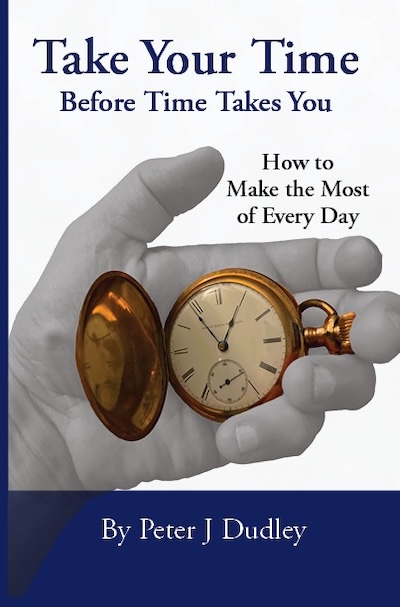Comparing yourself to others diminishes your agency
People think that comparing themselves others is the best way to see how well they’re doing, but the reality is the opposite. Comparison diminishes agency rather than increase empowerment.
Clients often say something to me like, “I know I shouldn’t compare myself to others, but…”
I have found that comparison is rarely helpful and often harmful. Yet we all do it anyway, all the time.
Yesterday, during a breakout session at the Alzheimer’s Association Oregon Caregiver Conference, one attendee asked the speaker, “Did you have a good relationship with your mom before her diagnosis?”
A moment earlier, the attendee had framed her question by saying she was having trouble managing her own mom, and as an only child she wished she had a sibling to share the burden.
I heard the compassion fatigue in her voice. And I heard in her words that she was reinforcing her perception that she had it worse than everyone else. She must have it worse than everyone else, to feel as bad as she does. If only she had a sibling. If only her mom were nicer. If only.
There’s some satisfaction in the self-righteousness of being able to say, “It would be so much easier if only I had what that person has.”
I remember that feeling as a parent.

My oldest had recently come out to us as transgender at 18 years old. She was going through some intense depression and body dysmorphia at the time, and I kept thinking how much easier her life would be if she’d identified and come out before puberty. She looked like a young man, and that was driving a lot of the depression.
Then we got into a support group with parents of younger trans kids, and I stopped comparing my situation to theirs.
They did not have it easier. My kid was 18. That meant all the decisions were her own, and she was in charge of how she moved through life. Parents of six-year-olds and 11-year-olds were facing impossible decisions for their own kids as those kids approached puberty.
No, it would not have been easier. It would have been different. But not easier.
The speaker at the Alzheimer’s conference answered the attendee’s question by saying, “I had a wonderful relationship with my mom before her dementia, but I think that made it harder when she lost her ability to speak just a few months into it.”
There’s a utility in comparing yourself to others. It’s one way we measure how we’re doing relative to the bell curve. Unfortunately, we are very good at comparing but very bad at being scientists.
The problems with comparing yourself to others include
- Misrepresented data
We usually get only a tiny view into other people’s lives. That neighbor family with a huge home, enormous boat, vacation cottage, and all the best and newest toys? They may be on the verge of foreclosure due to debt. - Cherry picking
Confirmation bias is the tendency to over-value evidence that supports your preconceptions and downplay evidence that refutes your preconceptions. The conference attendee wasn’t looking for useful answers; she was looking for validation of her perception that she had it worse than everyone else. - Bad data sets
We never see the entire bell curve at once, and our place on it. When comparing to others, we are always looking up the ladder or down the ladder, but never both at once.
No matter which way your comparisons are biased—feeling worse or better than others—comparison almost always diminishes your own agency.
People think that by measuring themselves against others, they’re getting a valid, unbiased view of how well they’re doing. In reality, the opposite is true. They aren’t getting a valid view, and they cannot possibly be unbiased.
Instead, comparison almost always serves to reinforce preconceived notions of your own situation. And that, in turn, reduces your agency to change that situation.
While it’s useful to take stock of the assets and roadblocks others have, and what others are doing that help them be successful, putting too much weight on that observation can limit imagination, creativity, and problem-solving.
In my case as a parent, I mistook the barriers in front of me as harder to overcome than the barriers others faced that I could not see. It made me think that if my situation were different, solutions would be easier. That thought was actually like a tether for my problem-solving abilities and creativity.
Agency to solve problems, to progress, and to succeed lies in your ability to see reality, to understand objectively the assets you have and the obstacles you face, and to apply your creativity and problem-solving skills in your unique situation.
You can learn from others and see where others succeeded and failed, but falling into the trap of comparison gives you bad data to work from, reinforces your limiting beliefs and biases, and diminishes your creativity and problem-solving.
Connect with me
Schedule a consultation session now or drop me a line.

With Take Your Time Before Time Takes You, learn to make the most of every day through thought-provoking exercises and perspective-twisting stories. Get it now in paperback or ebook.
“It changed my life.” – TP, client
“A go-to guide for people who want to improve their lives but don’t know where to start.” – MJ, earlier reviewer

RELIT: How to Rekindle Yourself in the Darkness of Compassion Fatigue gives practical, actionable advice on avoiding and overcoming compassion fatigue and caregiver burnout. My chapter explains how I stay centered and focused so I can give every client my best, every time.
Download my chapter for free: Show up. Try hard. Be nice.
Or just go buy the whole book. It’s worth it.


